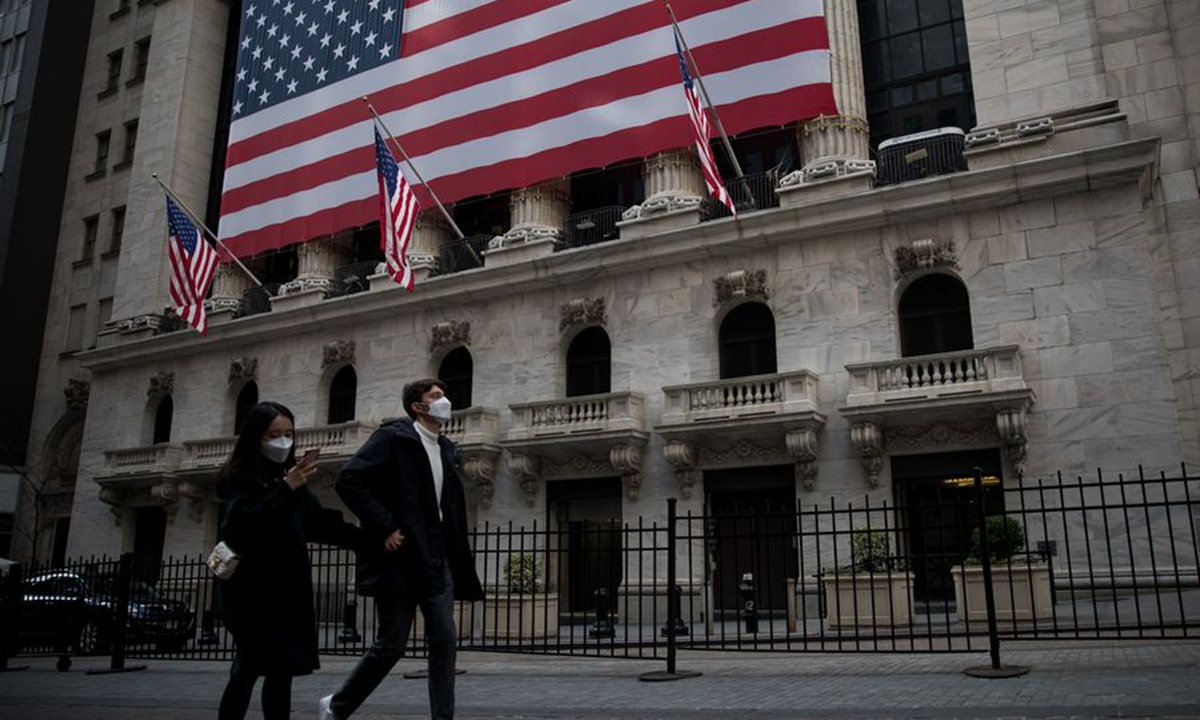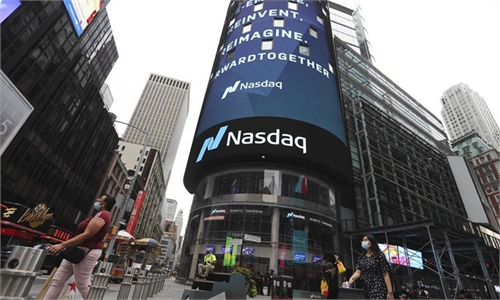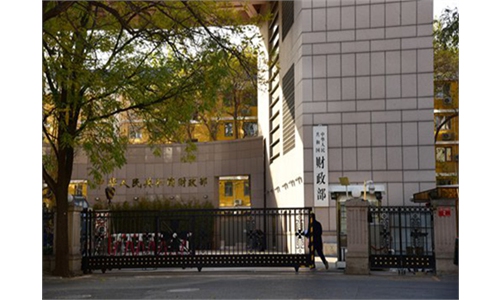
Pedestrians wearing face masks walk past the New York Stock Exchange in New York, the US. Photo: Xinhua
US Securities and Exchange Commission Chair Gary Gensler said during a media conference on Wednesday that he was "not particularly confident" about reaching an agreement with China over a longstanding audit dispute, Bloomberg reported.His remark came in sharp contrast with previous comments from Chinese securities regulators. In April, Fang Xinghai, vice chairman of the China Securities Regulatory Commission (CSRC), said that "the bilateral negotiations are going very smoothly and we are confident that the relevant uncertainties regarding US-listed Chinese firms will soon be removed," according to media reports.
While the different expression of confidence between Chinese and US officials over the prospects of auditing cooperation talks could be seen by some as a negotiation tactic, it is more indicative of the US increasing pressure on China. But Chinese companies going public in the US is not a favor China asks the US to grant, and the same is true with bilateral audit cooperation.
Over the past few years, the US has launched various unilateral and protectionist policies to crack down on Chinese companies, which has caused significant damage to global trade and financial cooperation. Against this backdrop, the securities market regulation has also been politicized and used as a tool to contain China.
Accounting standards and disclosure rules surrounding US-listed Chinese companies have long received much attention, and China and the US formed a series of agreements and conducted a number of cross-border regulatory cooperation in the past. But things have changed dramatically since the US introduced The Holding Foreign Companies Accountable Act, which apparently targets Chinese companies, aims to remove foreign companies from American exchanges if they fail to provide audits for inspection for three years in a row.
It's been over two years since Chinese and US officials first engaged in negotiations over the audit dispute. If they fail to reach a deal before the deadline of 2024, then many US-listed Chinese companies will face possible expulsion from American exchanges.
While dialogue and communications between regulatory bodies from both countries are important, it is also worth noting that the differences can only be addressed with the US side shrugging off the influence of the anti-China political environment. This is because if the US hasn't given up its political purpose of delisting Chinese companies in the US, it will be hard to imagine how the two sides can reconcile their differences. Therefore, the US side needs to change its stance of suppressing China first before resolving their audit differences.
The US spreading of its strategy of containing China to the financial market regulation will not only hurt Chinese companies listed in the US, but will also be harmful to the interests of US capital market and investors. Over past three decades, China has been the world's fastest growing economy. Thus, listings of Chinese companies, especially those high-tech or with promising growth potential, in the US market means remarkable investment returns for global investors. And with considerable Chinese stocks, New York has also consolidated its role as the number one financial center. As of the end of May, a total of 277 companies were listed in the US, with total market capitalization of nearly $1.1 trillion, according to data from Wind.
If American investors are denied access to Chinese companies because of the US continued politicization of market regulation, it will be a heavy loss for US market.
Hong Kong and mainland stock exchanges will be the direct beneficiary from the US discrimination against Chinese companies. As of Wednesday, a total of 23 US-listed Chinese companies have successfully landed on the Hong Kong stock exchanges, with surely more to follow. And as China's financial markets open up wider and Chinese companies fare better, more US capital will be lured to flow in.



